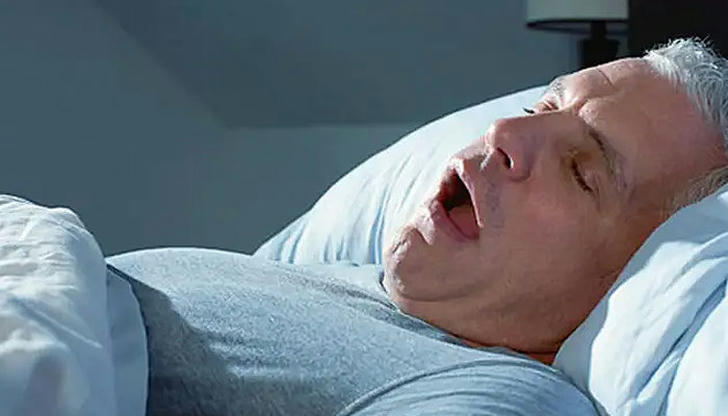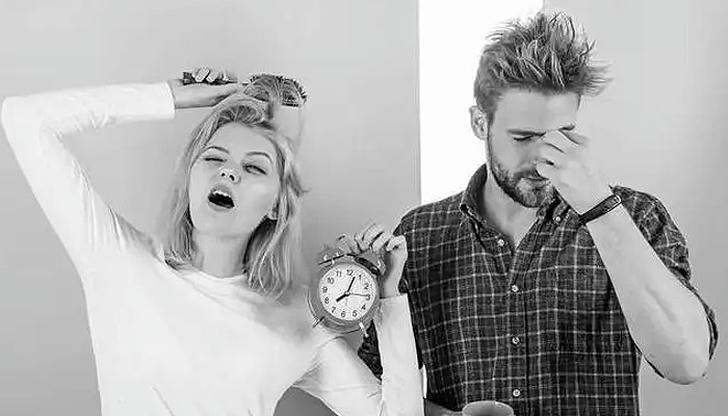11 Signs Of Sleep Apnea
Advertisement

Snoring is often associated with a sleep disorder called obstructive sleep apnea syndrome (OSAS). Not all snorers have OSAS, but if snoring is accompanied by any of the following symptoms, it may be an indication to see a doctor for further evaluation for OSA: Witnessed breathing pauses during sleep.
These are the signs and risk factors for sleep apnea. But the first & most important thing is to check the following signs of sleep apnea first. Try to rule that out or get a diagnosis.

- Get a full night of sleep but wake up feeling unknown fatigue and dozing most mornings
- Experience excessive daytime sleepiness and irritability
- Snoring accompanied with significant breathing asymmetry.
- Having an unexplained headache or dry throat in the morning.
- Sleeping with mouth breathing or abnormal & thick breath sounds for a long time, especially for the children. 6.Wake up frequently in the night for unknown reasons (not due to noise or a need to go to the bathroom)
- Significant cardiac arrhythmia at night. If people with refractory hypertension are accompanied by snoring symptoms, you must go to the hospital otolaryngology department as soon as possible. 8.Stop breathing for 5-10 seconds or more at a time. 9.Seem to be gasping for air during sleep? Wake themselves up gasping for air? 10.Have a BMI above 30, high blood pressure or a wide neck circumference (>16 inches) 11.Having snoring face. If someone have the following "face look" should be careful - Short neck, proud flesh on both sides of the cheek, eyes accompanied by edema, jaw contraction, thin upper lip, unconsciously open upper and lower lips, teeth separated, small nose, nostrils, turbinate hypertrophy, pharyngeal wall hypertrophy, levovar thick too long, big tongue and etc.
If you said no to all of these symptoms, it's probably not sleep apnea. Otherwise, you may need a further diagnosis in hospital.
Types of snoring

There are two types of snoring. One is the "simple" purring, which is mostly due to improper sleep posture or nasal congestion caused by a short period of the phenomenon of the snoring. This kind of snoring will be never seen again, once those external symptoms- such as a change of posture, cold recovery, rhinitis control, etc, naturally disappear. Generally speaking, these temporary snores do not need treatment. Of course, if it is chronic rhinitis, nasal polyps and other nasal congestion, you can go to the otolaryngology department to do some examinations and treatments.
Here we need to take care of other temporary factors, such as sedative use, consumption of alcohol, excessive smoking, seasonal allergies, swollen tonsils, etc. As we all know that smoking can inflame airways, pollen may cause an allergic reaction, while alcohol and medication can relax the muscles within the throat, all of which restricts airflow. So if you want to solve your snoring, and restore quite to the bedroom once again, you had better remove these temporary causes as soon as possible.
Another one is the "not simple" snoring, you should be careful! The nasal passages may be blocked due to polyp growth or a structural abnormality, or there may be irregularities with the soft palate or muscle tone within the throat which makes breathing while sleeping difficult. It should be noted that more than a quarter of people who simply practice perennial habitual snoring have sleep apnea syndrome, and 80% of them are not conscious of it.
So, when you find your partner snoring suddenly without sound, lasting for more than 10 seconds, and repeating this symptom frequently, he/she should be advised to go to a professor and get regular medical institutions in time.



